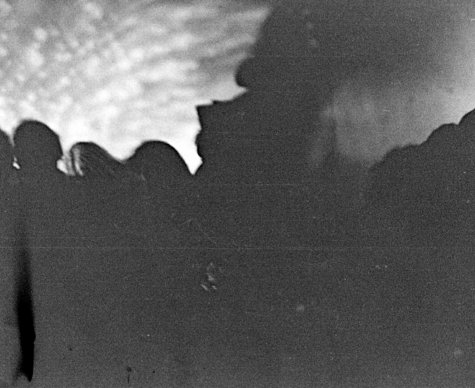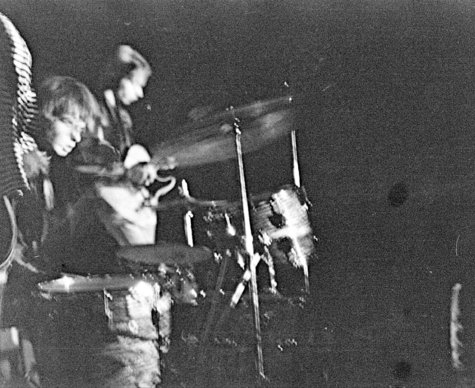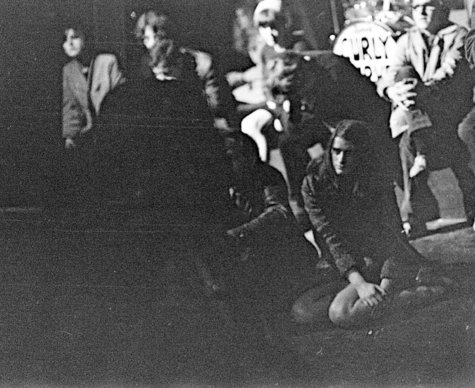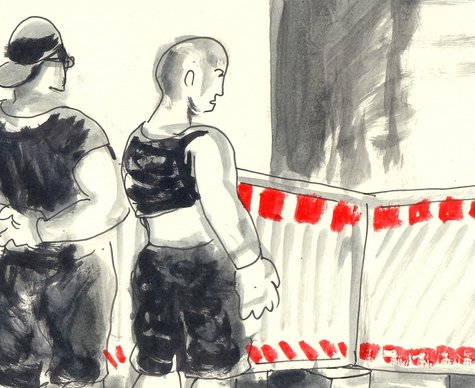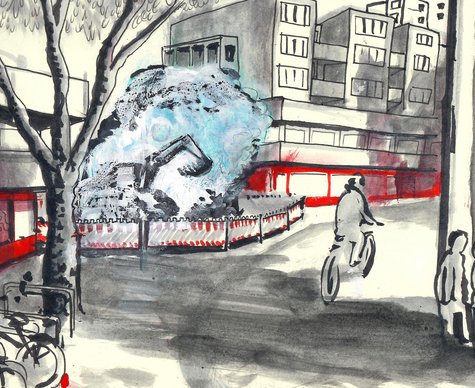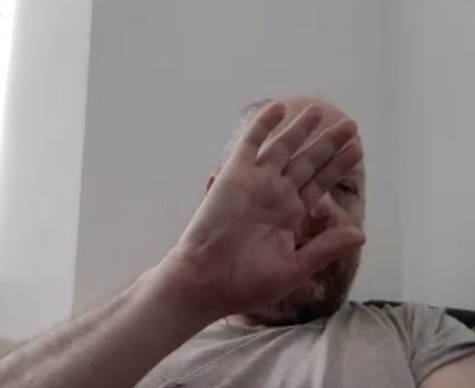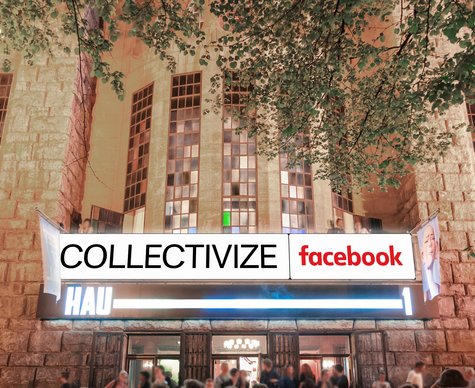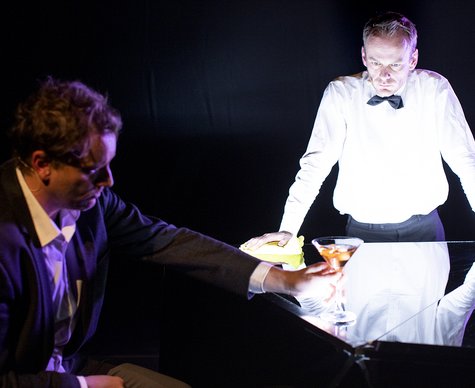With: Mike Banks / Mark Ernestus / Dimitri Hegemann / Adrian Tonon / Moderation: Yuko Asanuma
How Techno Came to Europe: The History of the Early Detroit – Berlin Exchange and Future Ideas
Part of “Detroit – Berlin: One Circle”
- Dialogue
When the record shop “Hard Wax”, founded by Mark Ernestus, opened now 29 years ago in Kreuzberg, a ten-minute walk from the nearest U-Bahn station, running a record shop was anything but obvious as a business idea. Techno and House were not yet established in Berlin, there was no real scene and therefore no customers to cater to. But “Hard Wax” made its first contacts to labels in London, New York, Chicago and above all Detroit – which started the often touted techno alliance between Berlin and Detroit.
The Detroit-Berlin axis is a history of how Berlin counterculture has changed the city over the course of the 29 years since the fall of the Wall and the reunification of the capital, with the aid of a common musical language: techno.
In Berlin this is inseparably tied to “Hard Wax” and the club “Tresor”, founded by Dimitri Hegemann, which brought Detroit techno musicians to Berlin for the first time, as well as to the label collective “Underground Resistance”, founded by Mike Banks, Jeff Mills and Robert Hood. In the own words, the concept of the UR was aimed against the desperation of the ghettos, the major record companies (“Majors”), the segregationist American system and so-called programming.
“Programming means that the system – and this means the entire complex of state, society and economy – programs citizens to its advantage. Through schools, education, advertisement and also laws the population is transformed into a functioning machine. People are indoctrinated by the influences that affect them, so that they satisfy the guidelines that keep the society alive.
Underground Resistance also make an effort to draw attention to the economic disaster in Detroit and to keep young people from drug abuse and criminality. UR disseminate their philosophy in the form of messages (for instance, by the Unknown Writer, a pseudonym of the UR member Cornelius Harris) on their records (for example, Message To The Majors, Black Moon Rising or Revenge Of The Jaguar – The Mixes) as well as in the lyrics and titles of certain tracks like Fuck The Majors, Electronic Warfare (“Do not allow yourself to be programmed”) or Transition.” (citation from: Techno Lexikon, 1998)
Only through their contacts in the reunified Berlin in Germany did UR find a lobby for its music. The “X-10x” series appeared, which was released exclusively on the label Tresor Records. The first piece by “Underground Resistance” (Banks, Mills, Hood) to be released on the “Tresor” label would be called “Sonic Destroyer”. It became a hit – first in Berlin, then worldwide – and served to strengthen the Berlin-Detroit axis. It is not too much to say that the inspiration of Detroit techno influenced the entire electronic & techno community. Detroit techno was the impetus for the largest youth movement of the last century.
Techno and Berlin club culture have by now been accepted and therefore promoted by the city of Berlin as important, economically relevant factors. In Detroit, on the other hand, where techno has its origins, there is not a single club to date that is licenced to be open past 2:00 a.m., which lays waste to the cultural heritage of the city. It is time for this to change. Adrian Tonon, the mayor’s right hand and a proponent of music, has taken up the project of developing the night time economy. For the success and the public reception of the techno movement in Berlin has also opened doors for various genres, from fashion to art.
Mark Ernestus, Mike Banks, Dimitri Hegemann and Adrian Tonon will speak with Yuko Asanuma about their previous collaborations with a view to the future.
Cast
Dates
Credits
In cooperation with THE POTENTIAL The Conference For Urban Development and Cultural Exchange. Presented as part of „Detroit-Berlin: One Circle“, a festival by HAU Hebbel am Ufer. Supported within the framework of the Alliance of International Production Houses by the Federal Government Commissioner for Culture and the Media.
Location
HAU1
Stresemannstr. 29, 10963 BerlinThere are two marked parking spots in front of the building. Access to the Parkett by means of a separate entrance with lift when necessary. Barrier-free restroom facilities are available. Tickets for wheelchair users and accompanying persons can be booked via the ticketing system. If you need any help, please contact our Ticketing & Service team at +49 (0)30 259004-27 or send us an email at
tickets@hebbel-am-ufer.de.


































